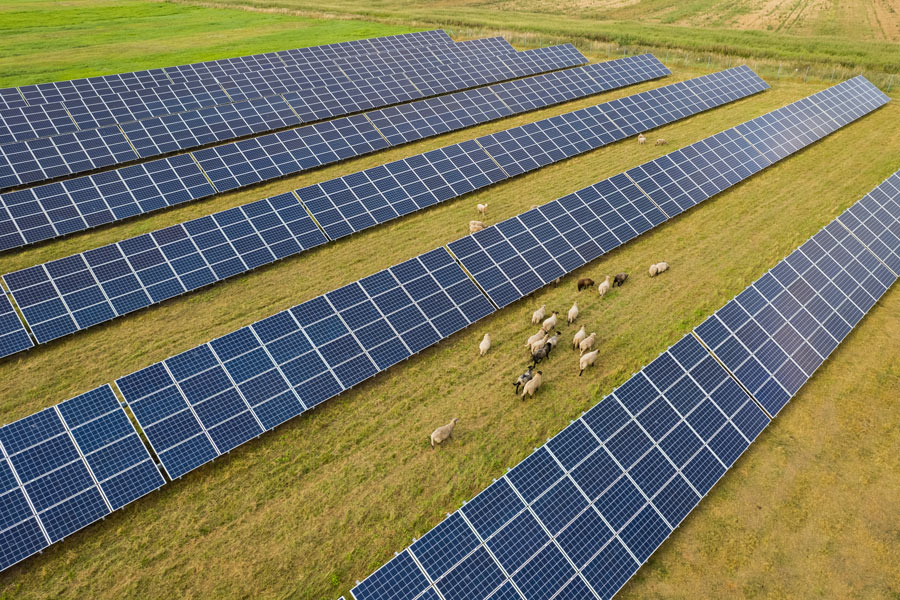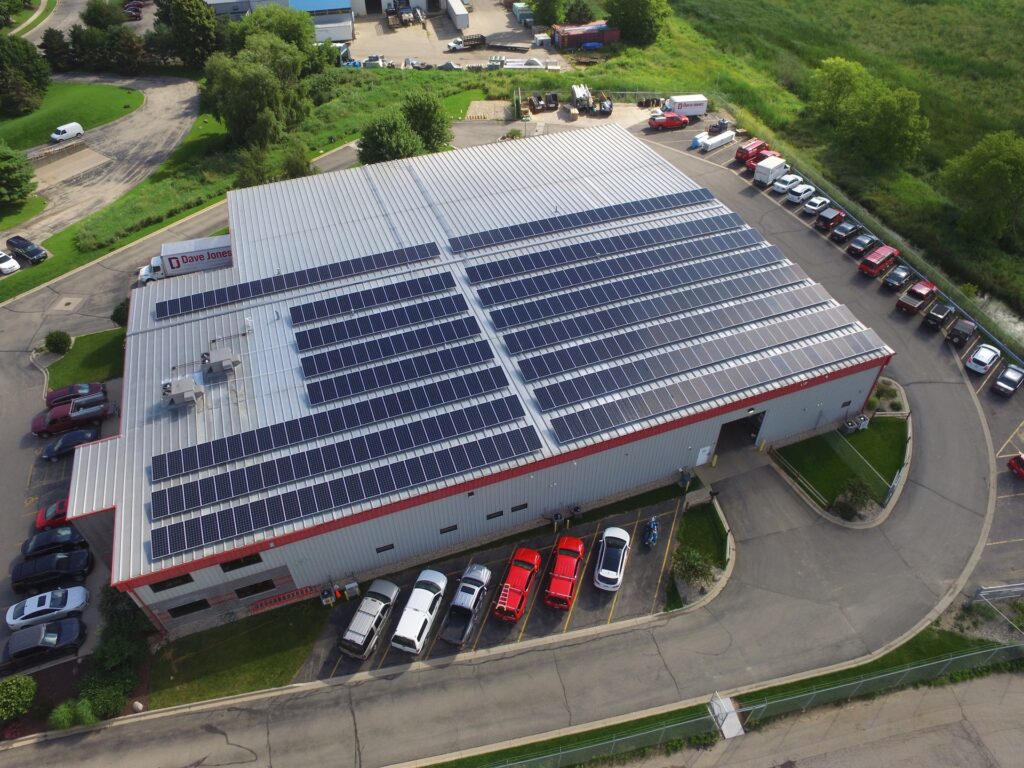This text was taken from an email alert sent out on Sept. 6, 2024. Sign up for email alerts →
Update 9/9/24: When the agenda for tomorrow’s Board of Supervisors meeting (Tuesday) was posted late last Friday afternoon, the public hearing on the solar ordinance was “withdrawn”. There will be no ability to comment on the proposed ordinance in person, for now, so you may want to save your attendance for if or when it returns on the agenda.
You can still submit written comments or speak in person during the open comment period at 5 p.m. in support of the Planning Commission’s proposed comprehensive plan amendment, detailed below. Thank you to those of you who have written letters already.
PEC will continue to follow the situation and will update you as we know more.

Dear Supporter,
On Sept. 10, the Orange County Board of Supervisors will consider a zoning ordinance to ban any solar facility that produces power primarily for off-site users. This extreme approach is contrary to good planning practice, doesn’t allow for a balancing of community needs, and bolsters efforts at the General Assembly to initiate the drastic step of taking away local authority on solar siting.
Rather than a ban, PEC supports a balanced and thoughtful approach to meeting Virginia’s growing clean energy goals. In February, the Orange County Planning Commission laid the groundwork for such an approach with a draft amendment to the comprehensive plan addressing public utilities, including commercial solar. This amendment contained guidelines to help avoid potential negative impacts of poorly developed utility-scale solar, without prohibiting well-sited and well-planned shared solar. Such guidelines are similar to those already in place in Culpeper, Fauquier, Louisa and Madison counties.
Unfortunately, the Board decided to table the draft amendment in April and push for an outright ban. Orange County residents should ask for the common sense regulations proposed by the Planning Commission.
Take Action
Ask the Board of Supervisors to demonstrate a commitment to both minimizing impacts to Orange County’s unique natural and cultural resources and enabling landowners to participate in clean energy projects that are compatible with the County’s Comprehensive Plan goals.
The Board should: 1) take final action and approve the Planning Commission’s set of guidelines for solar (CPA 24-01/Resolution 24-06); and 2) follow the Planning Commission’s recommendation to vote “no” on the solar ban (ZTA 24-01).
Board of Supervisors Public Hearing
Tuesday, Sept. 10 @ 5 p.m.
Orange County Public Safety Building
11282 Government Center Drive, Orange
We urge residents of Orange County, to:
- Speak up and be heard at the Board’s Sept. 10 meeting: Community members have three minutes to speak directly to the Board about the Planning Commission’s proposed guidelines (early in the meeting at the general public comment period) and on the proposed ban (during the public hearing portion of the meeting).
- Submit written comments: If you are unable to speak at the public hearing, you can submit written comments by emailing Alyson Simpson, Chief Deputy Clerk and Office Manager, at asimpson@orangecountyva.gov.
Putting the Cart Before the Horse
The proposed ban on solar is not only ill-conceived, it is also premature, as the Supervisors never actually voted on the Planning Commission’s comprehensive plan amendment. Rather, they tabled it at their April 9 meeting without voting. Good planning practice dictates that zoning regulations be crafted after the comprehensive plan is adopted, to ensure regulations are in line with the vision and policy priorities articulated by the community in their comprehensive plan.
The Planning Commission recommended that Supervisors approve the comprehensive plan amendment; instead, Supervisors are considering a sweeping ban that could have adverse implications for the county.
In an effort to accelerate meeting Virginia’s renewable energy goals in the Virginia Clean Economy Act, the General Assembly is considering legislation that would remove localities’ ability to plan for and regulate solar within their boundaries. One of the rationales for such an extreme action, presented to the committees in testimony last session, was the prospect of too many local governments choosing to adopt outright bans like the one Orange County is considering. PEC advocates for common sense, reasonable, best practices for solar development, and retention of local control, to ensure the best possible projects are informed by the community and its needs.
The proposed ban also ignores the differences between utility-scale solar and community-scale, shared solar.
Shared Solar vs Utility-Scale

We know that we need to protect our farmland, water resources, and community assets to ensure a resilient and prosperous future. However, we also know that some commercial solar will be necessary to meet energy demands in a cost-effective and sustainable manner. One alternative to large, rural facilities is shared solar.
Shared solar produces electricity at or near the point where it is used, and then is carried on distribution lines to local consumers, whereas utility-scale projects typically connect to much larger transmission lines to carry power to the broader commercial market.
Reasons we support a shared solar approach:
- Solar facilities close to users and distribution infrastructure helps reduce the amount of utility-scale solar needed, which in turn reduces impacts to our farms and forests.
- Shared solar provides an alternative energy source for people who cannot install residential or rooftop solar, ultimately putting solar within reach for more Virginians and making our energy transition more fair. State and federal incentive programs make shared solar affordable for everyone interested in participating.
- Appropriately-sited shared solar, on less productive portions of a farm or areas with marginal soils, for example, can supplement a farmer’s income with less harm to prime agricultural soils and other natural resources.
And, as written, the proposed ban fails to consider the benefits of solar, not only for farms, but for other rural small businesses as well. The benefits are multifold: energy security and independence, cost savings, and emissions reductions.
Advocating for Better Solar

All of us, especially farmers, need this transition to clean energy to minimize droughts, floods and extreme heat caused by polluting energy sources. Like Orange County’s Board of Supervisors and many county residents, we have concerns about poorly-sited and -planned solar projects and their adverse impacts to critical natural and cultural resources.
This is why PEC is advocating across our region for best practices for solar facility design and construction to protect our streams, important soils and other natural and cultural resources. We are also advocating at the state level for improvements to the permitting and siting process, particularly for changes to the Virginia Code that would require the solar industry to avoid and mitigate the loss of prime agricultural soils and intact forest land for solar facilities.
We continue to advocate that a greater share of renewables be installed within the built environment — on rooftops, parking lots and brownfields — to minimize the impact to rural areas. But well-sited and well-planned community and utility-scale projects that avoid and mitigate impacts will need to be a part of Virginia’s clean energy transition. Adopting common sense guidelines such as those proposed for the comprehensive plan by Orange County’s Planning Commission is one way to achieve good outcomes that can benefit our communities.
Join us in asking the Board of Supervisors to vote “no” on a ban and “yes” to guidelines that minimize the impacts and maximize the benefits from solar in Orange County. I hope to see you on Sept. 10.
Sincerely,
Don McCown
Land Use Field Representative
Orange & Madison Counties
dmccown@pecva.org
(434) 977-2033 x7047
